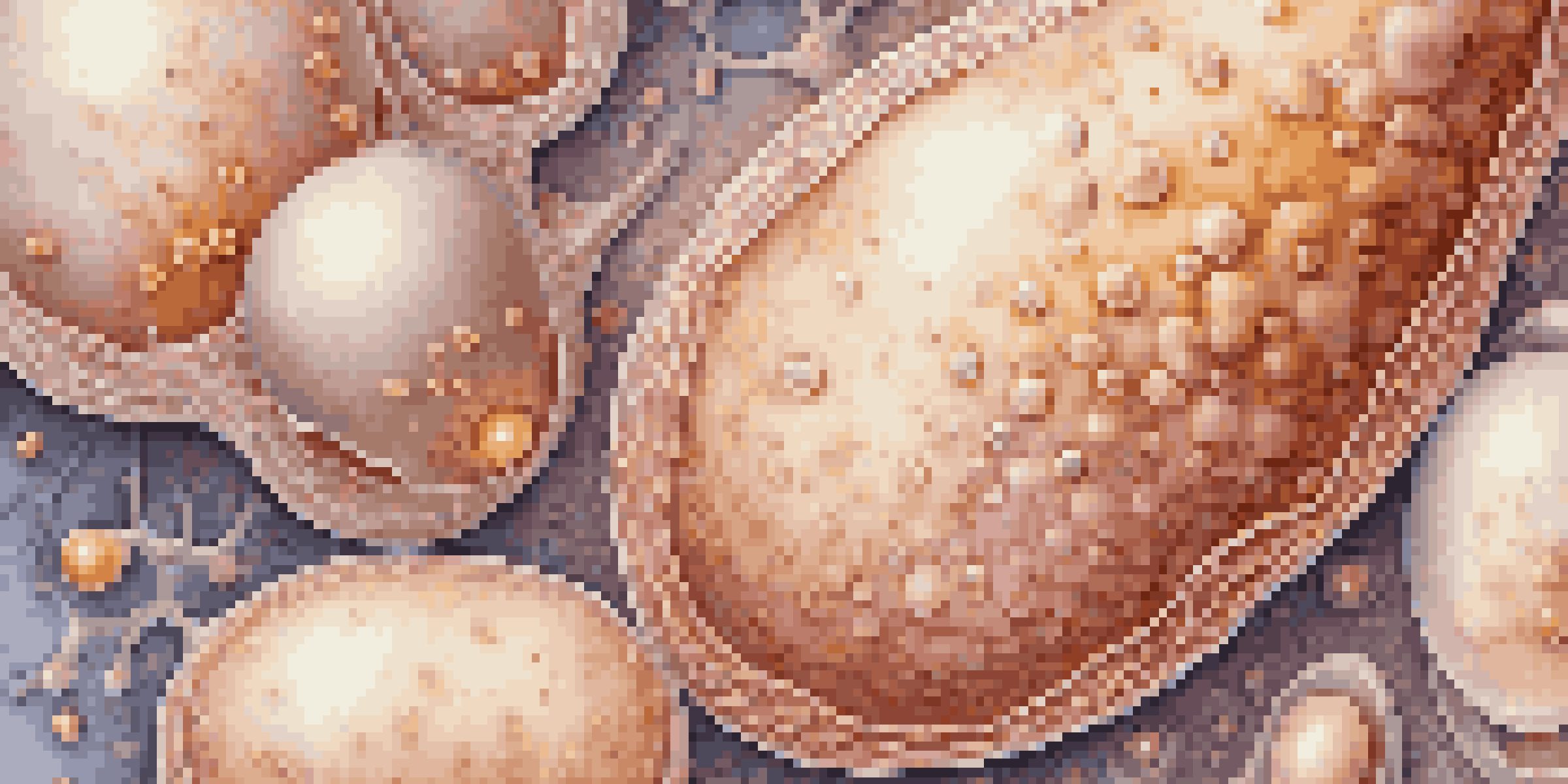Understanding the Role of Gamete Health in Fertility Success

What Are Gametes and Their Importance in Fertility?
Gametes are the reproductive cells that play a crucial role in human reproduction. In women, the gamete is the egg, while in men, it is the sperm. Both types of gametes must be healthy and functional for conception to occur, making their quality a key factor in fertility success.
The greatest wealth is health.
The health of gametes is essential because they carry genetic material that combines to form an embryo. If either the sperm or egg is compromised, it can lead to challenges such as infertility or genetic disorders. Understanding the nature of these cells helps in identifying potential issues early on.
Overall, recognizing the importance of gametes sets the stage for exploring various factors that influence their health, ultimately affecting fertility outcomes.
Factors Influencing Gamete Health
Several factors can impact the health of gametes, including age, lifestyle, and environmental influences. For instance, as women age, the quality of their eggs tends to decline, which is a natural part of the reproductive process. Similarly, men may experience a decrease in sperm quality as they get older.

Lifestyle choices, such as diet, exercise, smoking, and alcohol consumption, also play a significant role in gamete health. For example, a balanced diet rich in antioxidants can improve sperm quality, while excessive alcohol may negatively affect both sperm and egg health. Being proactive about these choices is vital.
Gametes: Key to Fertility Success
Healthy gametes are essential for conception, as they carry the genetic material necessary to form an embryo.
Additionally, environmental factors, such as exposure to toxins or pollutants, can harm gamete health. Understanding these influences can empower individuals and couples to make informed decisions to enhance their fertility prospects.
The Role of Nutrition in Supporting Gamete Health
Nutrition is a cornerstone of gamete health, as the body requires various nutrients to produce healthy sperm and eggs. Key nutrients include folate, zinc, omega-3 fatty acids, and antioxidants, which support cellular health and function. A wholesome diet can significantly enhance fertility.
Nutrition is the key to health and fertility.
For instance, foods rich in omega-3 fatty acids, like salmon and walnuts, have been linked to better sperm quality. Meanwhile, leafy greens and citrus fruits provide essential vitamins that aid in egg development. Incorporating these foods into your diet can be a delicious way to boost fertility.
Moreover, staying hydrated is crucial for maintaining optimal reproductive health. By prioritizing good nutrition and hydration, individuals can create a supportive environment for their gametes, ultimately improving their chances of conception.
Impact of Stress on Gamete Quality
Stress can have a profound effect on fertility, impacting both gamete quality and hormonal balance. When we're stressed, our bodies produce cortisol, which can interfere with the reproductive hormones essential for ovulation and sperm production. This connection highlights the importance of mental well-being.
Research has shown that chronic stress can lead to lower sperm counts and poorer egg quality. For instance, a study found that men under high stress had significantly lower sperm motility compared to those with more balanced lives. This demonstrates how emotional and physical health are intertwined.
Nutrition Boosts Gamete Health
A balanced diet rich in key nutrients can significantly enhance the quality of sperm and eggs, supporting fertility.
To combat stress, practices such as mindfulness, yoga, and regular exercise can be beneficial. By managing stress effectively, individuals can help protect their gamete health and enhance their overall fertility.
How Medical Conditions Affect Gamete Health
Certain medical conditions can significantly impact gamete health and fertility. For example, conditions like polycystic ovary syndrome (PCOS) in women can lead to irregular ovulation and poor egg quality. In men, conditions such as diabetes or hormonal imbalances can affect sperm production and motility.
Additionally, sexually transmitted infections (STIs) can compromise both sperm and egg health. Untreated STIs can lead to scarring or blockages in the reproductive tract, making conception difficult. Understanding these risks can motivate individuals to seek appropriate medical care.
Regular check-ups and screenings are vital for identifying and managing these conditions. By addressing underlying health issues, individuals can improve their chances of achieving healthy gametes and successful pregnancies.
The Role of Supplements in Enhancing Gamete Health
Supplements can play a supportive role in promoting gamete health, particularly for individuals who may have dietary gaps. For example, folic acid is often recommended for women planning to conceive, as it is crucial for proper fetal development and can improve egg quality.
Men may benefit from antioxidants like vitamin C and Coenzyme Q10, which have been shown to enhance sperm motility and reduce oxidative stress. These supplements help protect gametes from damage caused by free radicals, contributing to overall reproductive health.
Stress Impacts Fertility Quality
Chronic stress can lower gamete quality and disrupt hormonal balance, making stress management crucial for reproductive health.
However, it's essential to consult with a healthcare professional before starting any supplement regimen. This ensures that individuals receive tailored advice and dosages that best support their unique fertility journey.
Understanding the Testing Options for Gamete Health
Testing options for assessing gamete health are now more accessible than ever. For women, hormone testing can provide insight into ovarian reserve and egg quality, while tests like ultrasound can help visualize any structural issues. These tests can guide women in planning their fertility journey.
For men, semen analysis is a common test to evaluate sperm count, motility, and morphology. This information is critical for understanding male fertility potential and identifying any issues that may need addressing. Early detection can lead to more effective treatments.

Advancements in fertility testing technology, including genetic testing, allow for a deeper understanding of gamete health. By taking advantage of these testing options, individuals and couples can make informed decisions and optimize their chances of conception.